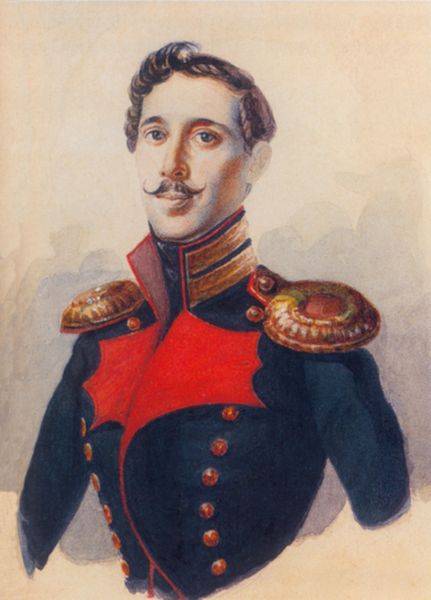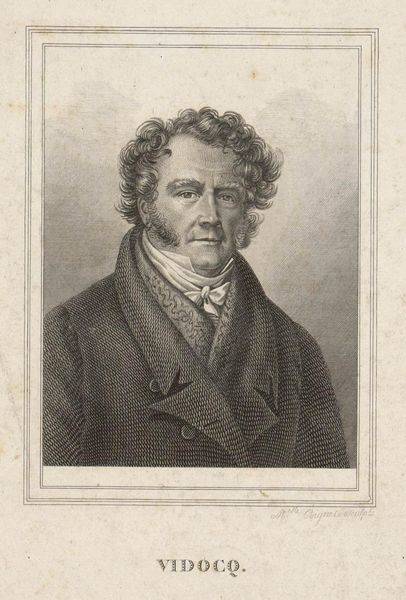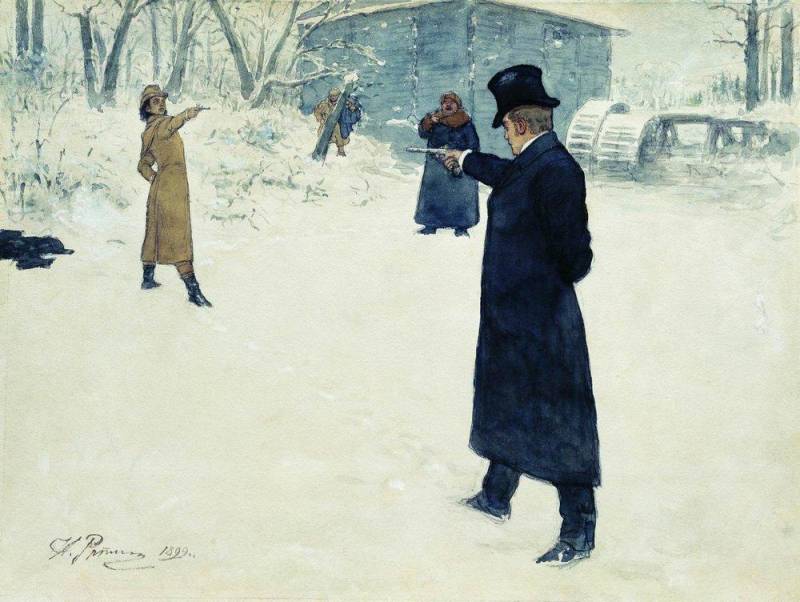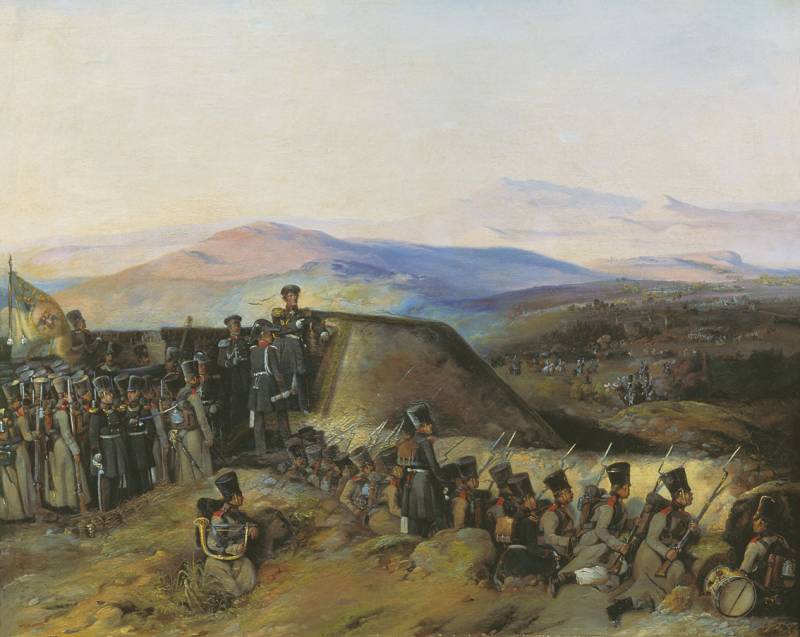The best Russian intelligence agent of the XIX century

Ivan Petrovich Liprandi lived a long life, having managed to personally get acquainted with a huge number of iconic figures of Russian stories. This state and military leader devoted most of his life to serving the Russian Empire, rising to the rank of Major General of the Russian Imperial Army and being an active member of the secret police. He devoted the last third of his life to military history, collecting materials about the Patriotic War of 1812, and also wrote memoirs about Pushkin. By the way, Alexander Sergeevich immortalized the image of Liprandi in literature, writing off the image of the mysterious Silvio from his best friend from the period of Chisinau exile in the novel “Shot”.
Hot Blood of the Iberian Peninsula
The future general of the Russian army and an active member of the secret police had Spanish-Moorish roots and belonged to the family Liprandi, who settled in Piedmont in the 1785th century. Thus, Liprandi changed the Iberian Peninsula to the Apennine. The father of the future Russian intelligence officer owned weaving factories located in the Italian city of Mondovi in the Piedmont region. He moved to Russia only at the end of the XNUMXth century, in XNUMX.
In our country, an industrialist took the name of Peter Ivanovich Liprandi and set about organizing a well-known weaving business. In particular, he was one of the founders of the Imperial Alexander Manufactory, which became the first mechanical spinning mill in the Russian Empire. In Russia, the children of Peter Ivanovich were also born, whom he baptized in the Orthodox faith. Ivan Liprandi was born July 17, 1790. According to some reports, Peter Ivanovich Liprandi lived 106 years. Whether it is true or not, it’s hard to say today. But it can be noted that longevity for those years was extremely atypical and passed on to his son, who did not quite live up to his 90th birthday (he died in St. Petersburg on May 9, 1890).
For his first-born Peter Ivanovich chose a military career, and Ivan Liprandi himself was hardly opposed. In 1807, at the age of 17, he entered the military service, becoming a column driver. At the beginning of the XNUMXth century in Russia they called the cadets (non-commissioned officers) who were preparing in the future to become officers of the "retinue of His Imperial Majesty for the quartermaster part." This is the old name of the General Staff of the Russian Empire.
Liprandi took a direct part in the next Russian-Swedish war, which lasted from February 1808 to October 1809. Already in December 1808, Ivan Liprandi was promoted to second lieutenant for his courage shown in combat conditions, and was additionally awarded a golden sword. Despite the fact that he was originally trained as an officer of the General Staff, he was often in battle formations. Being at the headquarters of Prince Mikhail Dolgoruky, Liprandi was a personal witness to his death, when on October 15, 1808, at the battle of Idenzalmi, the prince, together with the staff of his headquarters, tried to raise an overlying detachment. Many decades later, Ivan Petrovich will describe this event in his memoirs.
Moreover, already in the years of the Russian-Swedish war, the talent of a young officer who had a tenacious memory and could well remember all the details and events really revealed. Also, Ivan Liprandi was well versed in military topography, was able to read maps well and navigate the terrain. He distinguished himself in collecting intelligence, including secret information. It easily collected information on the movement of enemy troops, found a common language with the prisoners and the local population, which provided access to important information. For the next quarter century, it is intelligence activity in its very original form, when there was still no division into undercover, sabotage, and analytical branches, that would become the main activity for Ivan Petrovich. In this intelligence field at the beginning of the XNUMXth century, Liprandi will be practically unrivaled.
Another important quality of Liprandi was the ability to easily learn foreign languages. He read freely in Latin and in a large number of European languages. After the conclusion of peace with Sweden, Liprandi spent a lot of time in the library in Abo (today Turku), engaged in self-education. However, hot blood made itself felt. In the summer of 1809, a duel took place in Abo between Liprandi and the Swedish officer Baron Blom, who was considered a famous Swedish Breter. Ivan Liprandi emerged victorious from this duel, gaining fame throughout the army. Then, the reputation of a Breter and a recognized expert in matters of honor is forever secured to him.
At the origins of the “military police”
Ivan Liprandi met the Patriotic War of 1812 already in the rank of chief quartermaster of the corps Dmitry Sergeyevich Dokhturov. Together with him, Liprandi visited almost all the significant battles of the war of 1812, including the battle of Smolensk, Borodin, Tarutin, Krasny, Maloyaroslavets. For Borodino he was awarded the state award - the Order of St. Vladimir of the 4th degree. Also distinguished himself during the battle on the Katzbach River in August 1813. Liprandi managed to take part in the battle of peoples near Leipzig.
Ivan Liprandi's military career was developing successfully, the Patriotic War of 1812 and foreign campaigns of the Russian army brought him dozens of state awards, and he himself rose to the rank of lieutenant colonel. Until 1818, Ivan Petrovich Liprandi was in France as part of the Separate Guards (occupation) corps, commanded by Count Mikhail Vorontsov and Major General Mikhail Orlov. It was in France that Liprandi was even more immersed in intelligence activities, in practice becoming acquainted with the methods of work of the outstanding police officer Widoc.

Eugene Francois Widoc has done a lot for the development of police affairs around the world. Having transformed from a criminal into a private detective, and then the chief police officer of France, Widoc believed that only a criminal could overcome the crime. In fact, he created a whole brigade of former criminals, which was called "Surte" ("Security"). Widoc put into practice many of the ideas that are still used by the police and intelligence agencies of many countries. In particular, he created a system for the operational accounting of criminals, contributed to the development of criminalistics, began to contact representatives of science for scientific and technical expertise and work with physical evidence, and had a huge impact on the organization, strategy and tactics of police work. Acquaintance with this outstanding person was very useful for Liprandi.
It was Lieutenant Colonel Liprandi Vorontsov and Orlov who were instructed to organize a "military police", the structure of which has never been in the Russian army. In fact, it was a symbiosis of the GRU and the FSB, and the organization itself had to deal with intelligence and counterintelligence. It simply could not be otherwise. Intelligence activities in the occupied territory were inseparable from counterintelligence, and the political investigation was associated with criminal investigation.
Very soon, Ivan Petrovich Liprandi became a real Russian resident in Paris, who joined the local Masonic lodges, and had close contact with his French colleagues. In particular, on the instructions of Vorontsov, he investigated the secret royalist conspiracy ("Society of Pins"). There, in France, Liprandi, thanks to Vidoka, also saw the criminal world near him, mastered the skills of surveillance, recruitment, interrogation, got acquainted with the most modern search technologies, which he would later introduce in Russia.
Intelligence and Secret Police Service
In 1818, Liprandi returns to his homeland, but instead of the guards uniform he puts on a simple army. And instead of a brilliant career at the General Staff in the capital, the officer was actually waiting for a reference to the outskirts of the empire - to Bessarabia. According to one version, the next duel became the cause of the official turmoil of an excellent officer. But in the new conditions, Liprandi was true to himself. As in France, he was engaged in military intelligence. The love of collecting information, which some considered manic, and which will help him in the future with memoirs and historiography, was in demand in a new place.
Now, instead of the French, Liprandi collected mainly information about the Turks, studying the life and structure of the border areas: Bessarabia, Wallachia, Bulgaria, Romania, as well as the Balkans and the European part of Turkey. He also began to learn new languages, to which Turkish and numerous local languages were added. Despite the intense activity and numerous analytical notes and reports, this period of Liprandi's life will be remembered for all his acquaintance with Pushkin in Chisinau. Liprandi made friendship with the poet, they were together first in Chisinau, then in Odessa until the departure of Alexander Pushkin from southern Russia.
At the same time, acquaintance with Pushkin and friendship with him were only one episode in the life of a scout. In 1826, Liprandi was among those suspected of preparing the Decembrist uprising. At the same time, many believe that Ivan Petrovich, on the contrary, was introduced into the Southern Society of the Decembrists, made the necessary acquaintances and collected the necessary information. Contemporaries considered him a man of liberal views, who came from Paris, as well as an officer who was critical of the power of the monarch. Most likely, this was not true. Since after the arrest of Liprandi in Chisinau and charges of involvement in the activities of the Southern Society, he was released on February 19, 1826 with an acquittal.
After that, the most intense five-year period of intelligence activity came in the life of Liprandi. The intelligence genius and specialist in Turkey and the Turks themselves, Ivan Petrovich was seconded to the Southern Army, led by Pavel Dmitrievich Kiselev. Kiselev was preparing a military campaign against Turkey and Liprandi’s skills were very welcome. Liprandi received a full carte blanche for work and was actively engaged in establishing an agent network, as well as the work of the military police in the Danubian principalities. He personally recruited agents throughout the theater of future hostilities and did so very energetically. Liprandi's meticulousness here again was in the hands of the Russian army, since he collected all the possible information: on the condition of roads and fortresses, the nature of the terrain, composition and quality fleet, ports and marinas, arming the troops and the quality of their supply.
At the same time, he bribed Turkish officials and obtained correspondence from foreign consuls. But the work of Liprandi did not go unnoticed by the enemy. Three attempts were organized against him, but all of them ended unsuccessfully for the Turkish side. Against this background, showing his characteristic adventurism and perseverance, which combined with meticulousness, Liprandi continued to prepare voluminous reports and analytical notes that came to the command desk.
After the end of hostilities with Turkey in 1832, Liprandi resigned from military service, being already a major general, married a Greek woman Zinaida Samurkash and lived in a happy marriage, in which three sons appeared in the family. Liprandi returned to service in 1840, becoming an official of special assignments at the Ministry of the Interior. As an employee of the Russian secret police, he did a lot to uncover the Petrashevsky circle, identifying the main members of the secret society, all of them were then arrested. Also in the 1850s, he dealt with the issue of the Old Believers, especially the sect of the Skopts. Having studied the life and customs of the followers of this sect, Liprandi came to the conclusion that they do not pose any danger to the state.
In 1861, he finally retired and concentrated on history and literature, collecting memoirs and information about the Patriotic War of 1812, as well as publishing his own essays, notes and memoirs. Later, Leo Tolstoy quoted Liprandi's memoirs in his famous novel War and Peace.


Information